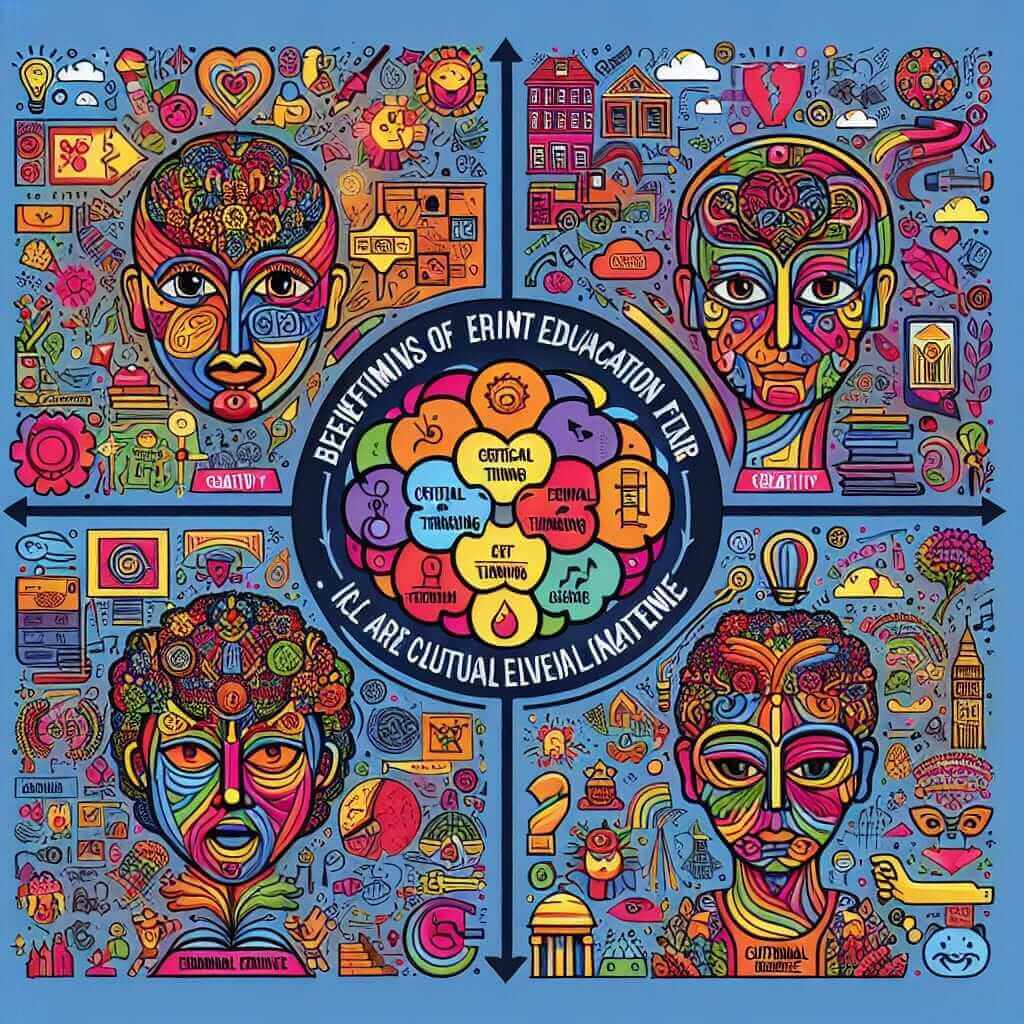“The importance of arts education in schools” is a topic that frequently appears in IELTS Writing Task 2. It falls under the category of education and societal issues. This essay will delve into common questions related to this topic, provide sample IELTS questions, present a model essay response, and offer a comprehensive analysis to equip you with the necessary skills for exam success.
Sample IELTS Writing Task 2 Questions
Here are some potential IELTS Writing Task 2 questions related to the importance of arts education:
- Some people believe that arts subjects, such as music and painting, are less important than science and technology subjects. To what extent do you agree or disagree?
- In some countries, schools are reducing the time allocated to arts education in favor of subjects like science, technology, engineering, and mathematics (STEM). What are the advantages and disadvantages of this trend?
- Arts education is often seen as a luxury rather than a necessity. Discuss the importance of arts education in schools and suggest ways to promote its value.
Model Essay: Question 1
Some people believe that arts subjects, such as music and painting, are less important than science and technology subjects. To what extent do you agree or disagree?
In the contemporary world, where scientific and technological advancements are rapidly shaping our lives, some argue that arts education is of lesser significance compared to STEM subjects. However, I firmly believe that the arts play a vital role in a well-rounded education and are essential for the development of individuals and society as a whole.
Firstly, arts education fosters creativity and critical thinking skills that are transferable to a wide range of disciplines. Engaging in artistic endeavors, such as painting, music, or drama, encourages students to think outside the box, experiment with new ideas, and develop innovative solutions. These skills are not only valuable in artistic pursuits but also in fields like science, business, and engineering, where innovation is highly prized.
Secondly, arts education promotes emotional intelligence and empathy. Through the arts, students learn to express themselves, understand different perspectives, and connect with others on an emotional level. Exposure to various art forms, such as literature, music, and theater, allows students to develop empathy by stepping into the shoes of others and experiencing the world through their eyes. This heightened emotional intelligence is crucial for building strong relationships, resolving conflicts, and fostering a more compassionate society.
Finally, while science and technology subjects provide students with technical knowledge and skills, arts education nurtures their imagination, creativity, and cultural awareness. Through art, students explore different cultures, historical periods, and human experiences, broadening their horizons and fostering a deeper understanding of the world around them. This holistic development is essential for producing well-rounded individuals who are not only skilled in technical fields but also culturally aware, empathetic, and imaginative.
In conclusion, while science and technology subjects are undoubtedly crucial in today’s world, dismissing the importance of arts education would be a grave mistake. Arts education is essential for fostering creativity, critical thinking, emotional intelligence, and cultural awareness. Therefore, I strongly disagree that arts subjects are less important than STEM subjects and believe that a balanced education system should prioritize both.
(Word Count: 318 words)

Analysis of the Model Essay
Structure: The essay follows the standard IELTS Task 2 structure:
- Introduction: Presents the topic and clearly states the writer’s opinion.
- Body Paragraph 1: Discusses how arts education fosters creativity and critical thinking.
- Body Paragraph 2: Explains the role of arts education in promoting emotional intelligence and empathy.
- Body Paragraph 3: Highlights the importance of arts education in nurturing imagination, creativity, and cultural awareness.
- Conclusion: Summarizes the main points and restates the writer’s opinion.
Vocabulary: The essay employs a range of advanced vocabulary related to education, creativity, and emotional intelligence, such as:
- Contemporary (adjective): /kənˈtem.pə.rer.i/ – living or occurring at the same time.
- Fosters (verb): /ˈfɑː.stɚ/ – encourages or promotes the development of something.
- Transferable (adjective): /trænsˈfɜːr.ə.bəl/ – capable of being moved or applied from one situation to another.
- Endeavors (noun): /enˈdev.ɚz/ – attempts to achieve a goal.
- Empathy (noun): /ˈem.pə.θi/ – the ability to understand and share the feelings of another.
- Holistic (adjective): /hoʊˈlɪs.tɪk/ – concerning the whole rather than individual parts.
Grammar: The essay demonstrates a good command of grammar, including:
- Complex sentence structures: “While science and technology subjects provide students with technical knowledge and skills, arts education nurtures their imagination, creativity, and cultural awareness.”
- Use of linking words and phrases: “Firstly,” “Secondly,” “Finally,” “Therefore.”
- Accurate use of tenses: Present simple, present continuous, and present perfect are used appropriately.
Difficult Vocabulary
- Contemporary (adj.) /kənˈtem.pə.rer.i/: belonging to the present time; modern.
- Fosters (v) /ˈfɑː.stərz/: encourages the development or growth of something.
- Transferable (adj.) /trænsˈfɜːr.ə.bəl/: capable of being moved or applied from one situation to another.
- Endeavors (n) /ɪnˈdev.ərz/: attempts to achieve a goal.
- Empathy (n) /ˈem.pə.θi/: the ability to understand and share the feelings of another.
- Holistic (adj.) /hoʊˈlɪs.tɪk/: encompassing the whole of something; considering all aspects.
- Nurture (v) /ˈnɜːr.tʃər/: to care for and encourage the growth or development of.
- Broaden (v) /ˈbrɑː.dən/: to become wider or more extensive.
- Grave (adj.) /ɡreɪv/: serious or dangerous.
- Prioritize (v) /praɪˈɔːr.ə.taɪz/: to treat something as more important than other things.
Conclusion
Mastering the topic of “The importance of arts education in schools” is crucial for IELTS Writing Task 2 success. By understanding the structure, vocabulary, and grammar used in model essays, you can enhance your writing skills and confidently tackle this topic in the exam. Remember to practice regularly, analyze your strengths and weaknesses, and seek feedback from experienced tutors to achieve your desired band score.